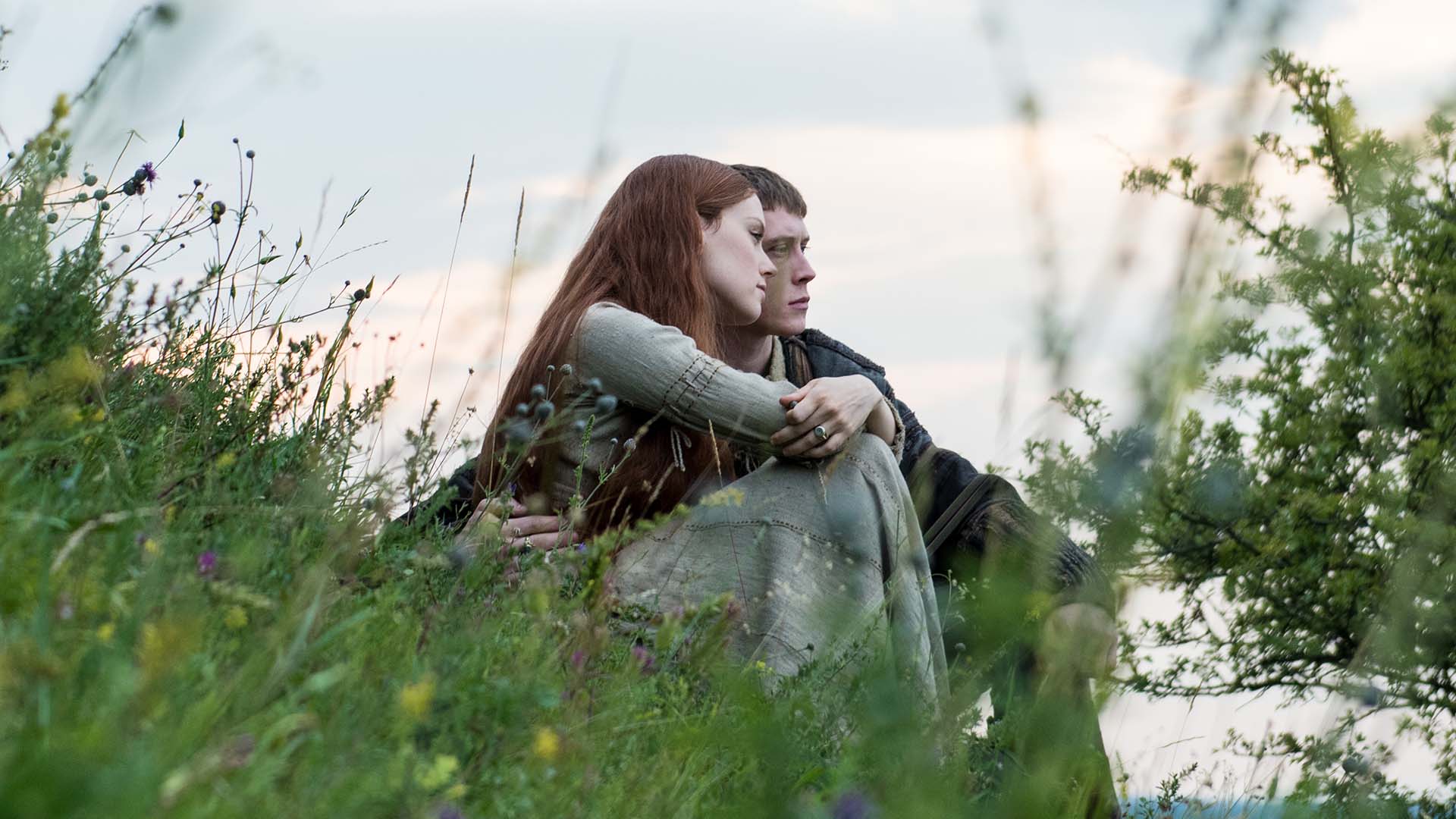Ophelia
A lushly staged and impressively performed alternate take on Shakespeare's 'Hamlet'.
Overview
As its eponymous heroine (Daisy Ridley) lays prone in a pond, eyes closed, her hands clutching a wilting bouquet of flowers, Ophelia opens with a potential mic-drop moment. "You may think you know my story; many have told it," the film's narration accurately advises, which usually signals that a swift change of style, approach or pace will soon follow. Thankfully, while slick, over-amped, action-packed modernisations of classic tales have become common on cinema screens of late, this take on Hamlet instead opts to switch its perspective. Exploring the tragedies surrounding the famed, fictional, medieval-era Danish prince (George McKay), the movie doesn't ponder whether to be or not to be. Rather, it views its narrative through his paramour's eyes — with the gorgeously staged and shot feature brandishing noticeable differences as a result, but still looking and feeling as if William Shakespeare wouldn't be rolling in his grave.
One of the playwright's most acclaimed and influential works (Star Wars, The Lion King and TV's Sons of Anarchy have all taken their cues from it), Hamlet has always proven a fascinating account of power, politics, love, lust, loyalty and vengeance. In Australian filmmaker Claire McCarthy's (The Waiting City) hands, that's also true, however its new feminist thrust is as intriguing as it is welcome. Adapting the novel by Lisa Klein, screenwriter Semi Chellas (Mad Men) contemplates not only the fate of feuding men, but of women forced to live with the consequences of male-dominated decisions. A delicate balancing act is at play; befitting today's times, Ophelia emerges from Hamlet's sidelines, tries to steer her own course and doesn't simply descend into jilted madness — although, as the Bard intended, her path remains forever tied to her beloved.
Uttered firmly and passionately by Ridley, whose Star Wars pedigree ensures she knows a few things about those traits, Ophelia's scene-setting introductory narration characterises its protagonist as "a wilful girl". They're her own words, worn as a badge of honour, which the film then spends its time unpacking. As a slip of a pre-teen (Mia Quiney) who's a little too wily for her widower father Polonius (Dominic Mafham), yet isn't allowed to receive the same education as her brother Laertes (Tom Felton), Ophelia attracts the attention of Queen Gertrude (Naomi Watts). While Hamlet (played as a child by Jack Cunningham-Nuttall) is schooled abroad, Ophelia joins the court's ladies-in-waiting. When the prince returns home as a man, finding Ophelia similarly all grown up, sparks fly — but so does betrayal, death and something rotten in the state of Denmark, especially after the king is slain, leaving his brother Claudius (Clive Owen) to claim Hamlet's throne as well as his mother.
McCarthy may buck the current stylistic trend when it comes to re-envisaging well-known, period-set stories (Robin Hood or King Arthur, this isn't, thankfully), but her interpretation still bears signs of its influences. With a focus on star-cross'd lovers, elements of Shakespeare's own Romeo and Juliet sneak in. Rosencrantz and Guildenstern earn a mention in the movie's dialogue, naturally, with the duo's own reimagined filmic excursion — comedy Rosencrantz & Guildenstern Are Dead — casting a small shadow. So too do a few of the Bard's recurrent motifs from his broader canon, including potions, twins and plays-within-plays. And yet, Ophelia is steadfastly its own piece, thanks to its evocative mood, sumptuous staging and intricate costuming in no small part. The tale's Elsinore castle setting appears both earthy and ethereal, continuing the lush aesthetics heralded in the movie's opening shot, which nods to Sir John Everett Millais's famed 1850s painting that's also named Ophelia.
One particularly horrendous wig aside — a long, drab, floppy mess that does the otherwise adequate Owen no favours — this version of Ophelia also makes the most of many of its stars, as any iteration of this narrative by any name needs to. Playfulness permeates Chellas' reworked prose, alongside the source material's trademark wit, which rolls off of the actors' respective tongues. A sense of inner steeliness reverberates through the film's performances too, not only guiding Ridley's work, but evident in Watts' efforts in multiple roles. Indeed, when a new take on Shakespeare inspires the audience to luxuriate in its characters, their dialogue and the emotions they're conveying, it's nobly doing its job.





